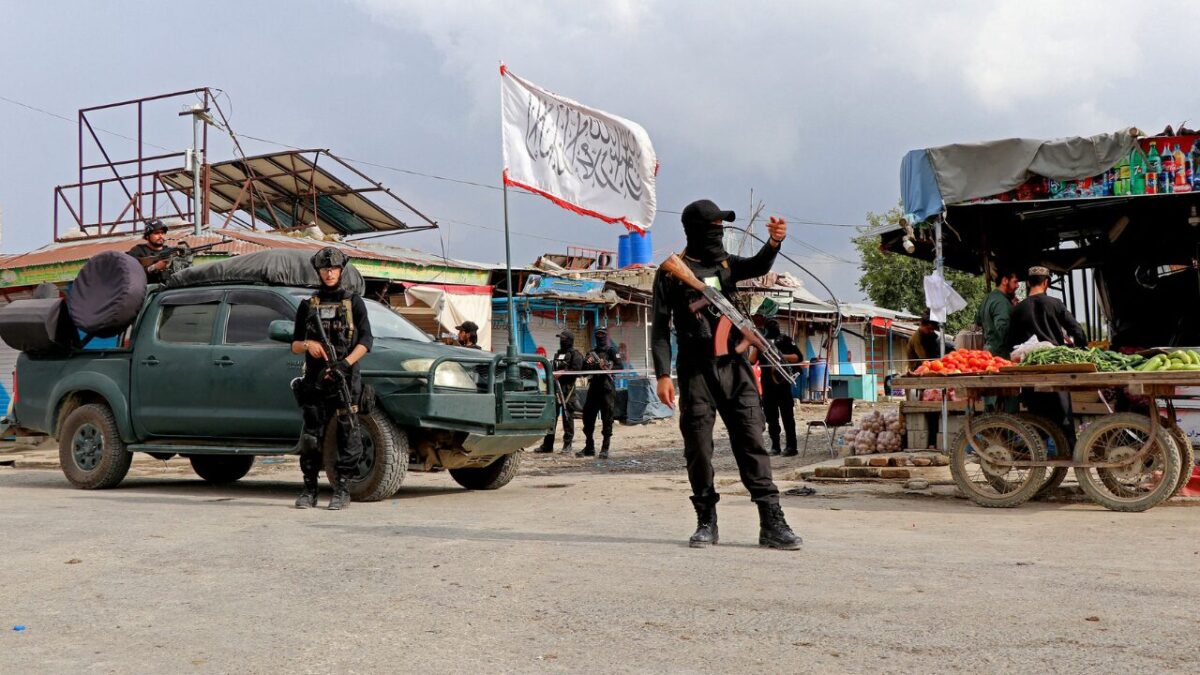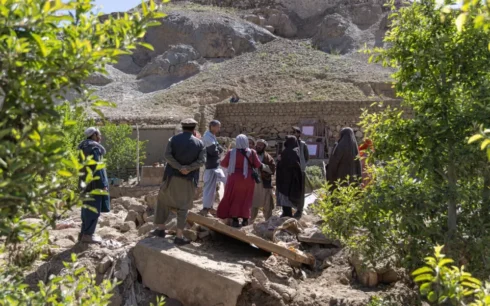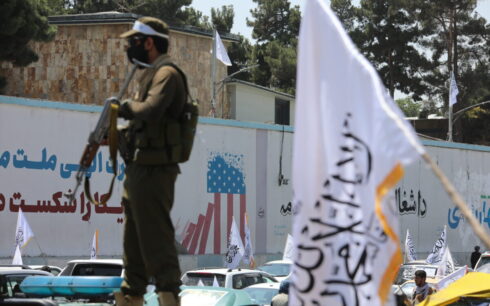In the three years since the Taliban seized power, 1,182 civilians have been killed and 2,904 others injured in Afghanistan, according to data compiled from various United Nations reports.
The U.N.’s quarterly reports, which meticulously track the security situation in Afghanistan, also recorded a staggering 15,865 security-related incidents across the country during this period. Among these incidents, 361 were linked to ISIS-Khorasan (ISIS-K), an extremist group that has intensified its operations under Taliban rule.
ISIS-Khorasan has claimed responsibility for numerous deadly attacks, including bombings at key locations such as Kabul’s Hamid Karzai International Airport, the Sardar Mohammad Dawood Khan military hospital, and multiple mosques and educational centers. The group’s brutal campaign has targeted a wide array of sites, from the Kaj education center to the Bibi Fatima mosque in Kandahar and the Imam Zaman mosque in Baghlan. These attacks have left hundreds dead and spread fear across the nation, even in areas considered strongholds of Taliban power.
Despite the clear and present danger posed by ISIS-Khorasan, the Taliban has consistently denied the group’s presence in Afghanistan. However, the deaths of several high-ranking Taliban officials in attacks claimed by ISIS-K have contradicted these denials. Among the victims are Nisar Ahmad Ahmadi, the acting governor of Badakhshan; Safi Samim, a former police commander in Baghlan; and Daud Muzammil, the governor of Balkh. These assassinations, along with the deaths of influential Taliban supporters like religious leaders Rahimullah Haqqani and Mujib-ur-Rahman Ansari, underscore the ongoing threat ISIS-Khorasan poses, even to the Taliban’s leadership.
The violence extends beyond ISIS-Khorasan. Anti-Taliban military groups, particularly the National Resistance Front (NRF) led by Ahmad Massoud and the Afghanistan Freedom Front led by Yasin Zia, have also been active, reporting numerous operations against Taliban forces. The U.N. has documented 131 attacks by these opposition groups over the past three years. These groups, including the Afghan Freedom Movement, have launched targeted operations against Taliban forces in various provinces, attempting to destabilize the Taliban’s grip on power.
In addition to these internal conflicts, Afghanistan has become a haven for various extremist groups, according to the U.S. Special Inspector General for Afghanistan Reconstruction (SIGAR). In its most recent report, published on July 31, 2024, SIGAR warned that Afghanistan is now home to a significant number of Tehrik-i-Taliban Pakistan (TTP) fighters—estimated to be between 6,000 and 6,500—primarily located in the country’s eastern regions. ISIS-Khorasan, according to SIGAR, maintains a force of 2,000 to 3,500 fighters, with their affiliates pushing the total number to approximately 6,000. These groups have exploited Afghanistan’s current state to establish a strong presence, threatening both regional and global security.
The U.N. Security Council’s report from February 2024 highlighted the resurgence of Al-Qaeda, which has established eight new training centers in Afghanistan, including in Ghazni, Laghman, Parwan, and Uruzgan provinces. The report also noted the construction of a new weapons depot in Panjshir, signaling Al-Qaeda’s continued influence and operational capacity in the region.
Despite these alarming developments, the Taliban continues to assert that it has restored “nationwide security” in Afghanistan and that there is no threat from Afghan soil to the outside world. However, the reality on the ground paints a starkly different picture. Bismillah Taban, a former military officer, offered a sobering assessment: “The Taliban tries to project an image of security, but in reality, terrorist groups like ISIS-K are active, and the Taliban themselves engage in repressive actions against former security forces and ordinary Afghans. Meanwhile, resistance forces like the NRF and the Afghanistan Freedom Front continue to conduct significant operations against the Taliban.”
As Afghanistan marks the fourth anniversary of the Taliban’s return to power, the gap between the Taliban’s narrative and the on-the-ground reality continues to widen. The international community remains deeply concerned about Afghanistan’s security situation, with fears that the country could once again become a breeding ground for terrorism, threatening both regional stability and global peace.





